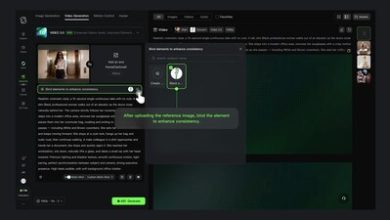If you’ve ever tried to hire HVAC Engineers, you know it’s not easy.
- You post the job.
- You wait.
- You interview.
- You shortlist.
And still, it feels like a gamble.
What if they can’t deliver? What if they leave in the middle of the project? Or worse, what if you don’t find anyone in time? Today we are going to solve all these issues and present you a new approach to find the right talent for your projects on time.
The Ongoing Struggle to Hire HVAC Engineers
Companies across industries from construction to tech facilities, need HVAC Engineers. The demand is high. But the talent in the market? Not so much.
Whether you’re building a new system or upgrading an old one, HVAC Engineers are crucial. But most HR managers don’t just need someone with skills. They need reliable, dedicated, and on-time professionals.
In-House vs. Freelance: What’s the Right Move?
Most companies go two ways when hiring:
1. In-House HVAC Engineers
You get full control. You can train them. They’re part of your team.
But…
- Recruitment takes time
- High salary expectations
- Extra costs: benefits, equipment, space
- And sometimes, they still leave for a better offer
You spend weeks hiring, only to start over again.
2. Freelancers
They’re flexible. Often more affordable.
But here’s the real talk:
- They’re juggling other projects
- Time zones don’t always align
- Communication tools and platforms add cost
- No real commitment to your timelines or standards
You save at the start but lose later with delays, misalignment, and rework.
Hiring HVAC Engineers Is About More Than Just Resumes
It’s not just about finding someone who knows HVAC. You need someone who understands your type of work, your clients, your pace, your standards.
And now, Mechanical engineers are also being brought into the HVAC space. A lot of companies are looking for talent who can handle both mechanical and electrical systems. But that makes the search even harder.
You’re not just hiring for skills. You’re hiring for alignment, dedication, and accountability.
So, What’s the Better Option?
Today, many companies are doing something smarter. Instead of spending months on hiring, they work with service providers who offer remote HVAC Engineers and even Mechanical engineers, already vetted, trained, and ready.
But not just a staffing agency.
The good ones don’t just find you people.
They assign the right engineer, manage them, and track your project.
You get someone working 5 days a week, just like an in-house hire — but without the overhead.
And guess what? You don’t have to worry about payroll, benefits, or hiring software. You get expert HVAC Engineers, dedicated project managers, and clean communication, all in one place.
What Does That Look Like in Real Life?
Let’s break it down:
- You tell them your project goals
- They analyze your needs (sometimes using AI matching)
- You interview top-matching engineers
- Once onboard, the engineer works full-time for you
- A PM tracks progress and helps manage delivery
- And if it doesn’t work, they help you replace and retry fast
It’s flexible like freelance but dependable like full-time.
Why It’s Worth It
You get:
- Top HVAC Engineers and Mechanical engineers
- No stress over onboarding or setup
- Reduced costs and faster timelines
- Someone to manage the process end to end
- More time to focus on growth — not staffing
Companies doing this are completing projects faster, saving on HR costs, and avoiding the usual hiring mistakes.
A Smart Suggestion
If you’re thinking this sounds like a smart model, you’re right. One top suggestion worth checking out is J.O.T Solutions. They offer exactly this, remote HVAC and Mechanical engineers with project managers and support teams built in.
Just one place, and everything’s covered.
FAQs
Q1: Can remote HVAC Engineers really work like in-house staff?
Yes. With proper integration, tools, and a clear process, remote engineers can function just like in-office employees. Some companies even provide full-time schedules, daily check-ins, and direct communication.
Q2: What’s the main risk of hiring freelancers for HVAC projects?
The main risk is lack of commitment. Freelancers may leave mid-project, struggle with time zones, or prioritize other clients, which delays delivery and increases cost.
Q3: Why are companies adding Mechanical engineers to HVAC teams?
Because HVAC systems often involve complex electrical and mechanical components. Having both HVAC Engineers and Mechanical engineers ensures smooth system integration, especially in larger builds or tech-heavy environments.




